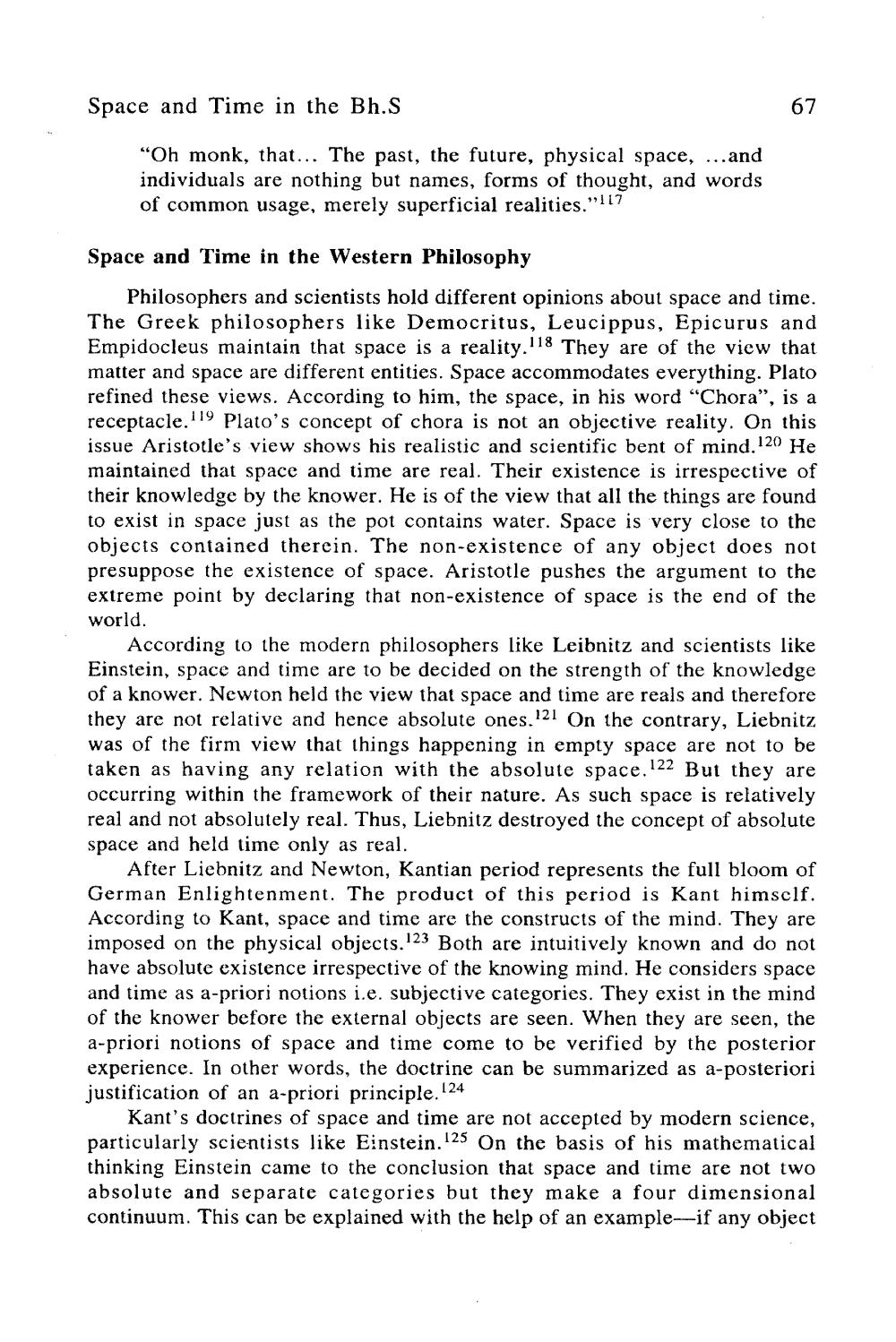________________
Space and Time in the Bh.S
67
“Oh monk, that... The past, the future, physical space, ...and individuals are nothing but names, forms of thought, and words of common usage, merely superficial realities."117
Space and Time in the Western Philosophy
Philosophers and scientists hold different opinions about space and time. The Greek philosophers like Democritus, Leucippus, Epicurus and Empidocleus maintain that space is a reality. 118 They are of the view that matter and space are different entities. Space accommodates everything. Plato refined these views. According to him, the space, in his word "Chora", is a receptacle. 119 Plato's concept of chora is not an objective reality. On this issue Aristotle's view shows his realistic and scientific bent of mind.120 He maintained that space and time are real. Their existence is irrespective of their knowledge by the knower. He is of the view that all the things are found to exist in space just as the pot contains water. Space is very close to the objects contained therein. The non-existence of any object does not presuppose the existence of space. Aristotle pushes the argument to the extreme point by declaring that non-existence of space is the end of the world.
According to the modern philosophers like Leibnitz and scientists like Einstein, space and time are to be decided on the strength of the knowledge of a knower. Newton held the view that space and time are reals and therefore they are not relative and hence absolute ones. 121 On the contrary, Liebnitz was of the firm view that things happening in empty space are not to be taken as having any relation with the absolute space. 122 But they are occurring within the framework of their nature. As such space is relatively real and not absolutely real. Thus, Liebnitz destroyed the concept of absolute space and held time only as real.
After Liebnitz and Newton, Kantian period represents the full bloom of German Enlightenment. The product of this period is Kant himself. According to Kant, space and time are the constructs of the mind. They are imposed on the physical objects. 123 Both are intuitively known and do not have absolute existence irrespective of the knowing mind. He considers space and time as a-priori notions i.e. subjective categories. They exist in the mind of the knower before the external objects are seen. When they are seen, the a-priori notions of space and time come to be verified by the posterior experience. In other words, the doctrine can be summarized as a-posteriori justification of an a-priori principle. 124
Kant's doctrines of space and time are not accepted by modern science, particularly scientists like Einstein. 125 On the basis of his mathematical thinking Einstein came to the conclusion that space and time are not two absolute and separate categories but they make a four dimensional continuum. This can be explained with the help of an example--if any object




